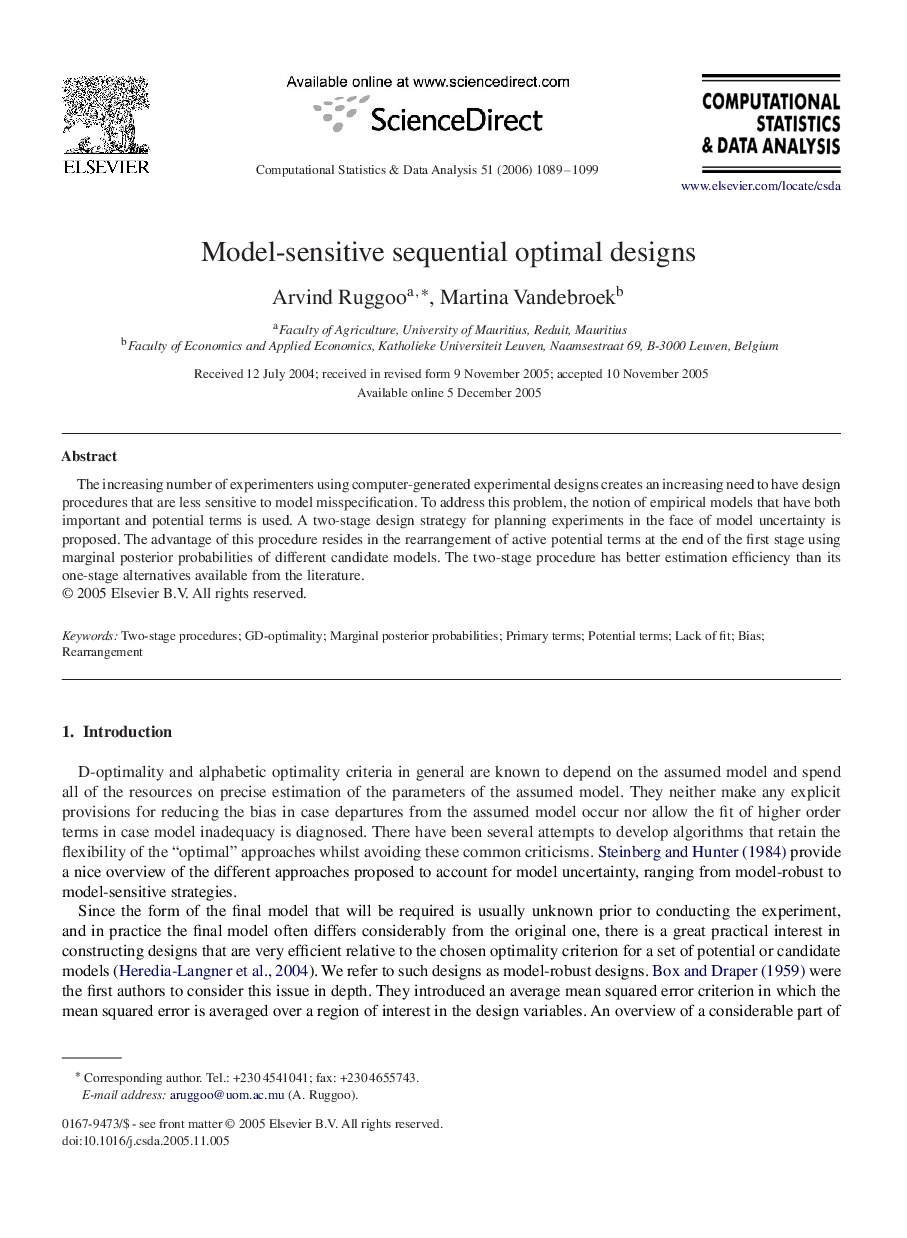| Article ID | Journal | Published Year | Pages | File Type |
|---|---|---|---|---|
| 416747 | Computational Statistics & Data Analysis | 2006 | 11 Pages |
Abstract
The increasing number of experimenters using computer-generated experimental designs creates an increasing need to have design procedures that are less sensitive to model misspecification. To address this problem, the notion of empirical models that have both important and potential terms is used. A two-stage design strategy for planning experiments in the face of model uncertainty is proposed. The advantage of this procedure resides in the rearrangement of active potential terms at the end of the first stage using marginal posterior probabilities of different candidate models. The two-stage procedure has better estimation efficiency than its one-stage alternatives available from the literature.
Related Topics
Physical Sciences and Engineering
Computer Science
Computational Theory and Mathematics
Authors
Arvind Ruggoo, Martina Vandebroek,
